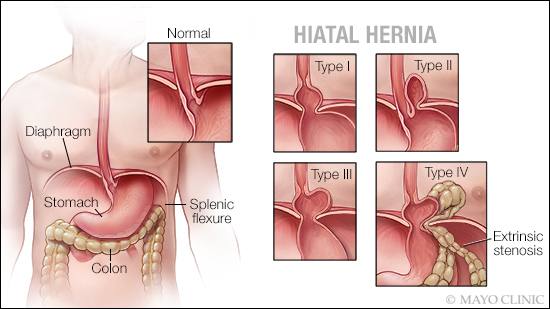Hiatal Hernia Surgery in Portugal
Search and Compare the Best Clinics and Doctors at the Lowest Prices for Hiatal Hernia Surgery in Portugal

Find the best clinics for Hiatal Hernia Surgery in Portugal
No clinics available
Morocco offers the best prices Worldwide
Price: $ 520

- Home
- Portugal
WHY US?
At Medijump, we're making medical easy. You can search, compare, discuss, and book your medical all in one place. We open the door to the best medical providers worldwide, saving you time and energy along the way, and it's all for FREE, no hidden fees, and no price markups guaranteed. So what are you waiting for?

Free

Best Price

Widest Selection

Risk-Free
What you need to know about Hiatal Hernia Surgery in Portugal

A Hiatal Hernia is when the stomach extends up into the chest through an opening in the diaphragm. Hiatal hernia surgery is a surgical procedure to repair and return the stomach to its normal location and is normally performed when the symptoms are severe or it did not respond well to other treatments.
What does a Hiatal Hernia Surgery Procedure Involve?
Hiatal hernia surgery can be performed as a laparoscopic or open surgery; both are done under general anesthetic. With open surgery, your surgeon makes a single large incision in your abdomen and returns your stomach to where it belongs and wraps it around the lower part of the esophagus to create a tighter sphincter. With laparoscopic surgery, your surgeon will make 3 to 5 small incisions to insert surgical instruments and the laparoscope. The laparoscope transmits images of the internal organ to a monitor, guiding your surgeon through the surgery.
How Long Should I Stay in Portugal for a Hiatal Hernia Surgery Procedure?
You may need to stay in the hospital for 1 to 3 days, but you should plan to stay in Portugal a lot longer. Plan to stay for at least 7 to 14 days or when you get sign-off from your surgeon. During your stay, you will need to attend scheduled follow up appointments and also removal of the stitches.
What's the Recovery Time for Hiatal Hernia Surgery Procedures in Portugal?
A full recovery may take about 10 to 12 weeks, but you can resume some of your daily routines and work within 6 to 8 weeks. If you have a physically demanding job, you probably need around 3 months before you can return. However, when the surgery is performed through a laparoscopic method, you may be able to recover in just a few weeks.
What sort of Aftercare is Required for Hiatal Hernia Surgery Procedures in Portugal?
After a hiatal hernia surgery, you need to avoid baths, hot tubs, or pools. Instead, you can wash your body by taking a shower. You will have a restricted diet to prevent your stomach from extending, this diet involves eating four to six meals per day rather than 3 large meals, as well as avoiding food that causes gas. Your doctor will also give you coughing and breathing exercises to help strengthen your diaphragm.
What's the Success Rate of Hiatal Hernia Surgery Procedures in Portugal?
A hiatal hernia surgery is effective and safe, with around 90% to 95% success rate. The mortality rate after the laparoscopic method is 0.57%, while the mortality rate after open surgery is about 1.0% - 2.7%. Just like any surgery, there are risks, complications, and that you need to be aware of, including bleeding, injury to internal organs, infection, diarrhea, abdominal bloating, and recurrence of the hernia.
Are there Alternatives to Hiatal Hernia Surgery Procedures in Portugal?
Hiatal hernia surgery is effective for those that experience severe symptoms. If your symptoms are mild, you can opt for medications or home treatment.
What Should You Expect Before and After the Procedure?
Once you have fully recovered, the symptoms that you experience before the surgery, such as nausea and heartburn, should subside.
Whilst the information presented here has been accurately sourced and verified by a medical professional for its accuracy, it is still advised to consult with your doctor before pursuing a medical treatment at one of the listed medical providers
No Time?
Tell us what you're looking for and we'll reachout to the top clinics all at once
Enquire Now

Popular Procedures in Portugal
Prices Start From $42

Prices Start From $4

Prices Start From $260

Prices Start From $520

Prices Start From $714

Recommended Medical Centers in Portugal for procedures similar to Hiatal Hernia Surgery

- Interpreter services
- Translation service
- Religious facilities
- Medical records transfer
- Medical travel insurance
- Health insurance coordination
- TV in the room
- Safe in the room
- Phone in the room
- Private rooms for patients available

- Interpreter services
- Translation service
- Religious facilities
- Medical records transfer
- Medical travel insurance
- Health insurance coordination
- TV in the room
- Safe in the room
- Phone in the room
- Private rooms for patients available

- Interpreter services
- Translation service
- Religious facilities
- Medical records transfer
- Medical travel insurance
- Health insurance coordination
- TV in the room
- Safe in the room
- Phone in the room
- Private rooms for patients available

- Interpreter services
- Translation service
- Religious facilities
- Medical records transfer
- Medical travel insurance
- Health insurance coordination
- TV in the room
- Safe in the room
- Phone in the room
- Private rooms for patients available

- Interpreter services
- Translation service
- Religious facilities
- Medical records transfer
- Medical travel insurance
- Health insurance coordination
- TV in the room
- Safe in the room
- Phone in the room
- Private rooms for patients available

- Interpreter services
- Translation service
- Religious facilities
- Medical records transfer
- Medical travel insurance
- Health insurance coordination
- TV in the room
- Safe in the room
- Phone in the room
- Private rooms for patients available

- Interpreter services
- Translation service
- Religious facilities
- Medical records transfer
- Medical travel insurance
- Health insurance coordination
- TV in the room
- Safe in the room
- Phone in the room
- Private rooms for patients available

- Interpreter services
- Translation service
- Religious facilities
- Medical records transfer
- Medical travel insurance
- Health insurance coordination
- TV in the room
- Safe in the room
- Phone in the room
- Private rooms for patients available

- Interpreter services
- Translation service
- Religious facilities
- Medical records transfer
- Medical travel insurance
- Health insurance coordination
- TV in the room
- Safe in the room
- Phone in the room
- Private rooms for patients available
Hiatal Hernia Surgery in and around Portugal
Introduction
Portugal is a country located in southwestern Europe. It’s one of the oldest nation-states of Europe and the world. Its territory had been continuously invaded, settled, and fought over since prehistoric times. Today, the country has become a major tourist destination, with its architecturally stunning cities, cobblestone villages, medieval castles, great food, stunning beaches, and incredible weather. Besides its beauty, Portugal is also attracting people from all around the world for its healthcare. The country offers a combination of state-of-the-art private medical centers, with spotless facilities and private rooms, a wide range of procedures, with very short waiting lists, as well as highly trained patient-oriented medical teams who are fluent in different languages. The physicians in this country have been trained by high standard medical schools, where just top and talented students are allowed to attend.
Popular Cities and Regions in Portugal
Lisbon is the capital and the largest city in Portugal. This city is filled with friendly people, history, mystique, and amazing food. Explore its many beautiful churches, listen to Fado, take a trip to the Castle of St. Jorge, see Sintra, and have some fun in one of its nightclubs. Another popular destination is Batalha, which is home to the UNESCO-listed Batalha Monastery. The monastery was build from 1386 to 1517 and is known as the greatest Gothic masterpieces in Europe. Those who want to party or soak up the sun should visit Lagos, while those who love to wander around and visit museums should visit Porto. Both of these cities are popular and fascinating.
Transport in Portugal
International tourists usually arrive at Lisbon Airport. It is a hub for low-cost airlines EasyJet and Ryanair, and it serves flights to numerous cities around the world. To get around Portugal, trains and buses are very efficient. While trains are often cheaper, buses are usually quicker. Taxis are available in almost every city and are relatively cheap.
Visas in Portugal
Since Portugal is part of the Schengen Area, citizens of 62 countries, including the US, Australia, the UAE, and Canada, are allowed to visit without a visa for up to 90 days. Citizens of most other countries are required to obtain a Schengen visa to visit the country.
Weather in Portugal
From March to May it is spring and the weather is pleasant but there will likely be some heavy rain. Summer, is from June to mid-September, can be scorching hot with temperatures rising to mid 30oC. Autumn, starts from mid-September to December and it brings colder temperatures but and an increased chance of rain. Winter can get quite cold and the days are shorter and always expect rain and storms during this season.
Additional Info
- Local Currency: The euro is the official currency. 1 EUR is equivalent to 1.08 USD.
- Money & Payments: ATMs are widely available, except in small villages. Credit cards are often accepted at midrange and high-end establishments. Tipping is usually expected at hotels and restaurants.
- Local Language: The official language is Portuguese. However, English, French, and Spanish are widely spoken in the country.
- Local Culture and Religion: Christianity is the major religion of the country. Other religions are practiced by a small portion of the population.
- Public Holidays: Portugal Day, Restoration of Independence, and Christmas Day are some of the public holidays celebrated in Portugal.
Popular Searches
- Plastic Surgery in Thailand
- Dental Implants in Thailand
- Hair Transplant in Thailand
- Breast Augmentation Thailand
- Gastric Sleeve in Thailand
- Gender Reassignment Surgery in Thailand
- Laser Hair Removal in Bangkok
- Botox in Bangkok
- Dermatology in Bangkok
- Breast Augmentation in Bangkok
- Coolsculpting in Bangkok
- Veneers in Turkey
- Hair Transplant in Turkey
- Rhinoplasty in Turkey
- Stem Cell Therapy in Mexico
- Rhinoplasty in Mexico
- Liposuction in Mexico
- Coolsculpting in Tijuana
- Rhinoplasty in Korea
- Scar Removal in Korea
- Gastric Sleeve in Turkey
- Bone Marrow Transplant in India
- Invisalign in Malaysia
- Plastic Surgery in the Dominican Republic
- Tummy Tuck in the Dominican Republic
- Plastic and Cosmetic Surgery in Poland
- Rhinoplasty in Poland
- Hair Implant in Poland
- Dental Implants in Poland
- IVF in Turkey